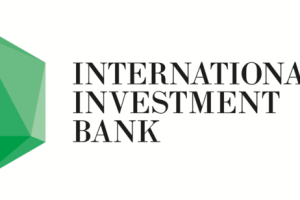Alătură-te comunității noastre!
Vezi cele mai recente știri & informații din piața de capital

In August 2022, the Economic Sentiment Indicator (ESI) decreased further in both the EU (-1.0 point to 96.5) and the euro area (-1.3 points to 97.6).
Meanwhile, the Employment Expectations Indicator (EEI), by contrast, stabilised after two months of significant losses (+0.4 points to 107.3 in the EU and +0.8 points to 108.0 in the euro area).
In the EU, the ESI’s decrease in August was driven by a significant weakening of confidence in industry and, to a lesser extent, services, which was only partially offset by tentative signs of stabilisation of retail trade, construction and consumer confidence.
Amongst the largest EU economies, the ESI plummeted in the Netherlands (-4.8) and posted significant declines in Germany (-2.5), France and Poland (both -1.8), as well as Italy (-1.2). Spain stood out with a mild increase (+0.8).
Industry confidence decreased for the sixth month running (-1.4), as managers’ assessments of the current level of overall order books saw another sharp deterioration and the stocks of finished products were appraised as more abundant, pointing to weakening sales.
Production expectations for the next three months, by contrast, edged up. Of the questions not entering the confidence indicator, both managers’ views on export order books and their appraisals of past production deteriorated significantly.
Services confidence weakened (-0.9) due to deterioration of its backward-looking components (past business situation, past demand). Managers’ demand expectations, by contrast, edged up.
Consumer confidence showed signs of stabilisation (+1.0) after ten months of declining readings. After sinking to new all-time lows in July, households’ assessments of their past financial situation stayed virtually unchanged and the outlook on their future financial situation even improved.
Consumers’ expectations about the general economic situation edged up and their intentions to make major purchases stayed practically unaltered.
Retail trade confidence remained broadly flat (+0.3), as improved appraisals of the past and expected business situation were offset by less scarce volumes of stocks, potentially reflecting faltering demand.
Construction confidence stayed virtually flat (+0.4), as more tepid assessments of the level of order books were offset by more optimistic employment expectations.
The share of construction managers pointing to shortages of labour reached yet another all-time high (32.7%, after 32.2% in July). The share of builders reporting shortages of material and/or equipment as a factor limiting their building activity, by contrast, declined for the fourth month in a row (22.6%, after 23.2% in July).
Financial services confidence (not included in the ESI) improved significantly in August (+7.3), thanks to managers’ more benign appraisals of all components entering the indicator (past demand, past business situation, demand expectations).









Vezi cele mai recente știri & informații din piața de capital